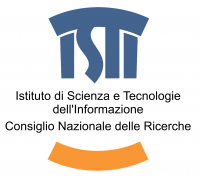Stefano Costa, Augusto Palombini
In 2006, when the first “Italian workshop on free/open source software and open formats in the archaeological research process” took place at the University of Siena, the whole idea of “adopting” different software tools seemed largely irrelevant and out of scope, even from the point of view of archaeological computing. Today, open source is technically ubiquitous in the form of cloud computing and mobile platforms – and it may seem again pointless to defend its adoption or usage as “revolutionary” or transformative in any sense for archaeological practice. Yet, communities of archaeologists continue to gather and discuss the topic, create and share tools (admittedly, without any ground-breaking advance for the discipline), sustaining the adoption of FOSS in higher education, training and CRM.
There have been several “open source” sessions at past CAA conferences, but it seems more appropriate to take a chance at discussing the merits, challenges and drawbacks that the FOSS movement in archaeology has brought to the wider discipline, altogether avoiding balkanisation in the form of “ghetto” show-case sessions. Therefore, we are proposing a session to encourage submissions tackling especially the actual impact of FOSS on archaeological practice, and looking beyond to the diffusion of software development tools (e.g. git) in digital archaeology, the need of nurturing a free software ecosystem for archaeology without losing focus on the actual aim – an ambiguity that is perhaps shared by the wider CAA audience – without limiting to software strictu sensu, it is clear that open hardware development and the “makers” movement have a valuable potential as ingredients of a DIY toolchain.


